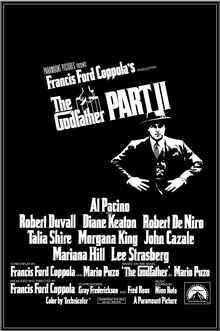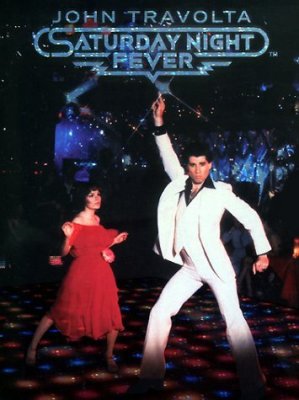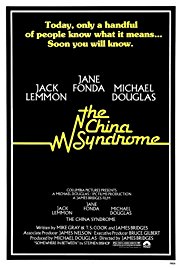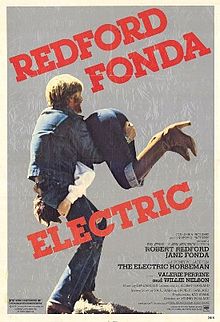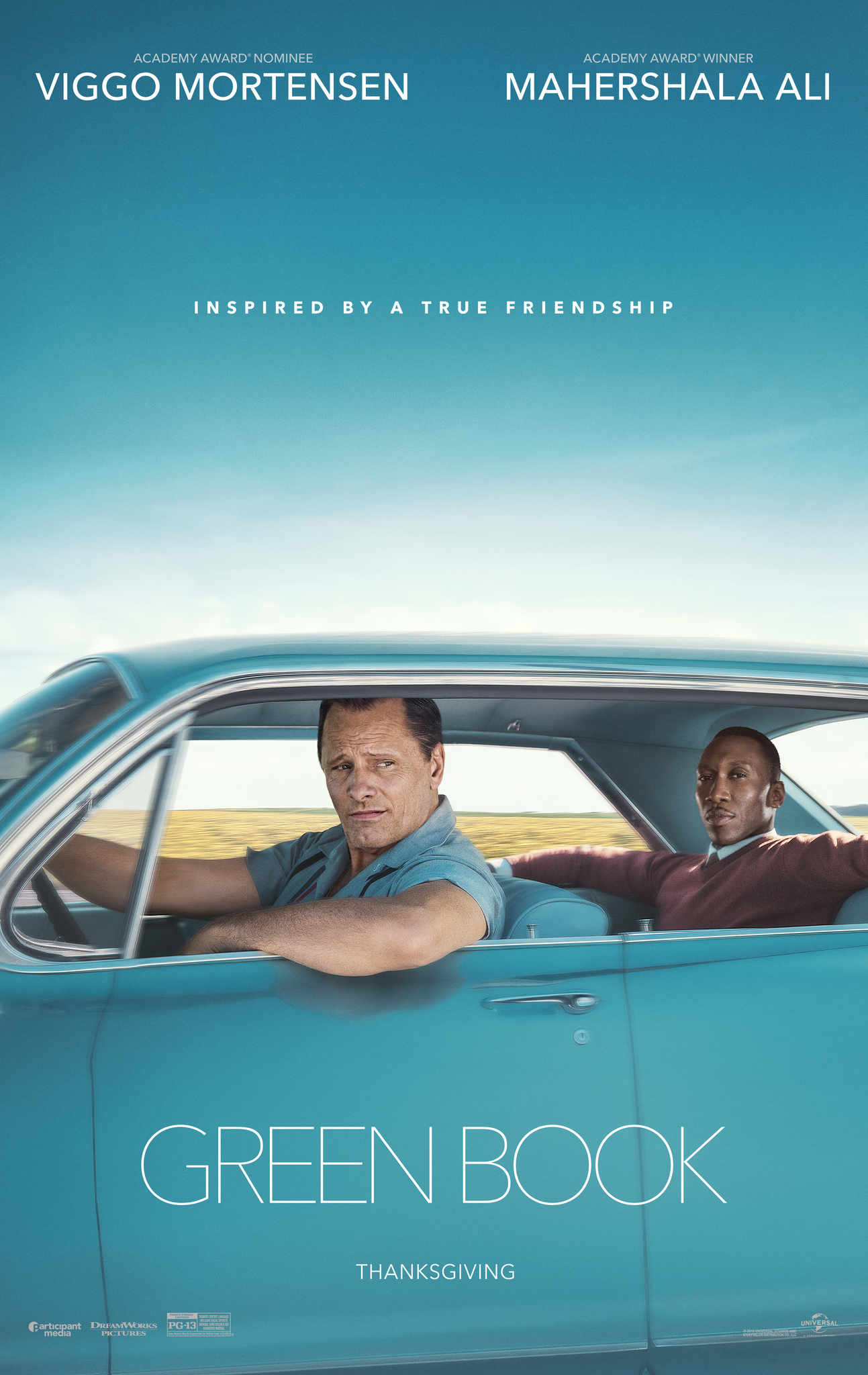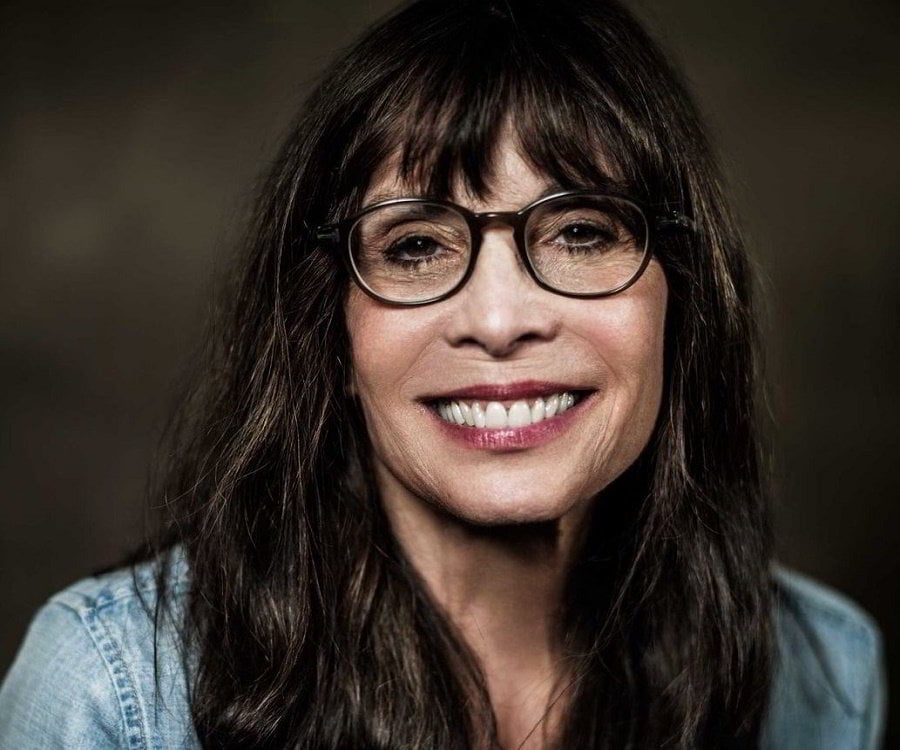Sensational sequel ‘Rocky II’ went a few too many rounds
“Rocky II” should end with Rock’s sprint through Philadelphia, this time in headband and with an audience, outrunning the kids and their exhortation to “Go! ... Go! ... Go! ... Goooooooooooo!”
It doesn’t.
Skipping the fight would’ve taken guts. It’s a boxing movie. Gotta have a fight, right? Fifteen rounds. Knockdowns and long counts. Extracurricular shoving. The thing is, the rest of the movie is so good, the boxing is superfluous ... and should’ve been left to the closing credits and Bill Conti’s spectacular score.
Choice of ending is probably about the only miscalculation Sylvester Stallone made in putting together one of filmdom’s greatest sequels, an incredibly spiritual love story that just so happens to be about a boxer. Critics maybe mentioned “formula” in the “Rocky” series. But Stallone at key moments upends expectations. Rock’s biggest obstacle in “Rocky II” is not the right hook of Apollo Creed, it’s fear — not his own fear (that comes later), but that of his wife. A man is being forced to choose between his career or his spouse.
How this is resolved should be controversial. Adrian, newly married and with a child on the way, has every right to think Rocky can find less dangerous ways to make a comfortable living. Among other things, in the last fight, he nearly went blind in one eye, a setback that gets a couple of token mentions in “Rocky II” before some editor realized “We can’t be having people thinking about that at the end of the film,” so it’s a problem conveniently discarded as healed by the time of the rematch.
Rock somehow keeps interviewing with suits because he supposedly wants a desk job, which never seemed to be an area of interest in the first film. Is he trying hard enough? There would seemingly be better outlets for someone of his strength and notoriety. He could be a firefighter, a lumberjack. Maybe he’s wearing suits to offices to make a point to Adrian that the ring is where he belongs.
In the first film, Stallone delivers a couple big surprises, especially the first-round knockdown of Creed hailed by Quentin Tarantino in Tarantino’s 2022 book Cinema Speculation. Throughout the “Rocky” series, Stallone also soars with impressive vignettes, the filmmaking version of body-punching. Notice in “II” that while Rocky is trying to settle in to retirement, there are subtle flashes of what we know he can be — when Mick asks him to snarl while hitting the bag, and also a stickball game, where he hits a titanic home run from his knees.
Stallone, obviously having an uncanny sense of televised sports, also excels at weaving real sportscasters into the “Rocky” stories. No movie franchise has done it better. Whether it’s Brent Musburger and Stu Nahan or, in other instances, veteran actors, the fight broadcasts and media coverage of Rocky’s pursuits could play word-for-word on ABC’s “Wide World of Sports” or the 10 o’clock news.
There are jokes in the “Rocky” movies about brain damage; it wasn’t until after the series ran its course that head injuries in sports ceased to be a punch line. It’s not uncommon to hear a person say, after some kind of misfortune, “Well at least I’ve got my health; that’s really all that matters.” The “Rocky” films feel differently. They tell us that life is about accepting our destiny and proving something to ourselves, no matter the cost ... and though that cost may be significant, the achievement of this kind of victory is something greater.
Prizefighting has always been that way. Only the thrill of being the toughest could prompt so many guys to get slugged by other tough dudes. Think about a marathoner. No one really needs to run 26.2 miles for any reason. People do. For the money? Maybe for a tiny handful; for most others, it's an affirmation of doing something most other people can’t.
Maybe this is why Adrian finally awakes to a massive change of heart and delivers one of the most powerful one-word quotes in film.
Before sealing the decision to fight again, Rocky tries to convince Adrian. (Her name, by the way, is officially spelled like the male version. Perhaps that is a type of tomboy reference, or perhaps it means nothing.) Instead, she convinces him that she should be going to back to work, at the pet store (part time), rather than him fighting. As the pressure builds from Apollo Creed and guys at the gym, Rock will ramp up his argument. “It’s all I know,” he insists. But her counterargument remains, “You could be whatever you want to be.” This type of drama does not leave much room for humor, though admittedly, Stallone at one point has the oblivious Mick hilariously complain, “What’s with this domestic stuff?!!”
Human nature will triumph over Adrian’s unimpeachable logic. Rocky becomes willing to defy her and fight because the accomplishment of the first film is suddenly put in question again, by not only Apollo’s taunts but Rocky’s difficulties in the job market — maybe he can’t provide for his family, maybe he didn’t prove himself, maybe the first fight didn’t matter, maybe he just got lucky.
His decision made, he will put forth his final argument, gingerly telling Adrian, “I never asked you to stop being a woman, you know.” To Adrian, that doesn’t equate with her request, leaving Rock’s head in shambles.
For a while, the viewer is seeing something Adrian isn’t. Rocky is dogging it. Lifeless. He’s supposedly in training for an enormous fight, but he’s barely showing up and getting roughed up by his own sparring partners. This fighter couldn’t beat his next-door neighbor.
Adrian doesn’t know this. Adrian only knows that Rocky is training for a bout she wishes was not happening. At home, she frowns at every mention of boxing, including a famously icy stare from a stairway. This powerful scene is only one of many for Talia Shire from the first three films, yet, in the crazy way Hollywood works, the Oscars never noticed. Shire was indeed nominated for best actress in the original “Rocky”; she lost to Faye Dunaway in “Network.” That’s maybe the wrong outcome but not an outrage. The outrage came with the second film, as Shire couldn’t even get a nomination for best supporting actress, which seems the relevant category. That Oscar went to Meryl Streep in “Kramer vs. Kramer” (see if you recall any of her quotes in that movie).
Roger Ebert and Pauline Kael evidently didn’t review the second film (though he said on TV that he liked it). Kael did opine on “Rocky” though and called it “engaging” and “emotionally effective” but also “shameless” with “mildewed ideas.” The first film, Kael decreed, succeeded because of its “innocence.” She could’ve noted that Rocky Balboa is maybe the most humble cinematic hero in hstory.
Janet Maslin complained that “Rocky II” is just “the same movie all over again.” Kael carped that the original “Rocky” is just a “threadbare patchwork of old-movie bits.” But for a concept derided as formula, it’s surprising how little others have tried it. Quick, name a boxing movie from before “Rocky.” There was Wallace Beery and Jackie Cooper in “The Champ” in 1931. (The Jon Voight/Faye Dunaway/Rick Schroeder remake was released in 1979, just before “Rocky II.” And “Raging Bull” was 1980.) Surely there were more, but try to name them. Boxing, with its collision of bodies, is great photographic material. Stallone takes it further with his training creativity — including the devastating speedbag at the sweaty gym but also getting Rock out of the gym, punching slabs of beef, catching chickens, sprinting through Philadelphia. If portraying this kind of material is so obvious, why did the bigwigs leave this jackpot to an independent such as Stallone?
It’s a fair argument to assert that Conti’s exhilarating score for the “Rocky” films is the greatest ever. The slightly unfair counterargument is that the films are already great without it, unlike “Chariots of Fire” and “The Way We Were,” whose music lifted those films to heights they shouldn’t have achieved. And that Conti’s music is actually better in “II” than in the first film. Even so, this is Mozart for movies.
Adrian’s reticence in “Rocky II” is a strong, perhaps too strong, obstacle. This is a righteous character. Her point of view is serious trouble for the viewer. If Adrian is so skeptical of this event, how can the viewer cheer it on. Adrian has to change her mind. Not an easy chore for the screenwriter.
Adrian will be informed of the situation by her brother Paulie. Because of his alarming physical chauvinism that’s questionably written into the scripts of the first two “Rocky” films, it almost seems like Paulie might strike his own sister. He doesn’t, but is nearly just as abusive with his tone. Yet he’s the one who reveals the formula for getting out of this — “Tell him it’s all right.”
This heated conversation will land Adrian in the hospital. When she wakes up, things will be different. In his lengthy, three-and-a-half-star review of “Rocky II,” Gene Siskel never mentions religion. Janet Maslin in The New York Times barely mentions “praying.” That is quite an oversight. Look at all of those crosses. Adrian is not changing her mind because she’s had a long nap. She’s changing it because of faith. God has put them on earth to do certain things, however dangerous. And now it’s clear. Notice that after their showdown about who should find work, it’s Adrian who nearly dies on the job, not Rocky. There’s a very large crucifix above Adrian’s bed. Rock stayed past visiting hours. He went to church. And Adrian woke up. They’ve won. This time, the conversation is pressure-free; he tells her if she doesn’t want him “messing with Creed,” he’ll gladly drop the whole thing. And this time, the answer is different. He has known that somehow, they’ll get through this. Now, so does she.
She will twice whisper to him, “Win.”
The first time, it’s a suggestion. The second time, it’s an order. Balboa, exhausted, beams — the greatest order a man has ever been given.
Taking it from there is Stuart K. Robinson, the character actor who plays Mick’s training associate Johnny who somehow appears about 20 names down the list of credits. Stallone perfectly choreographs Rocky’s training routine, starting with Mick’s hospital pronouncement, “What are we waitin’ for!!!!” But those one-arm pushups and junkyard sledgehammering don’t resonate like Johnny’s counting of the dumbbells and pushups ... 47 ... 48 ... 49 ... and karate chops to the chest. Mick is the over-the-top skeptic who has to do his “chewing up the scenery,” as Siskel complained, but Johnny is the stoic professional suddenly watching in awe a fighter come to life like he’s never seen. Melvyn Douglas, a sensational actor, won the supporting Oscar that year and Robert Duvall proved tough competition in “Apocalypse Now,” but neither matched the impact of Robinson’s couple of minutes training Balboa.
Carl Weathers’ golden moment in the first film is that downward sigh in the 14th round when Rocky gets up off the mat. In both “Rocky” and “Rocky II,” Weathers adequately portrays the bewilderment and frustration of Creed that many feel at a carnival game. How in the world am I not winning? Depicting a person — especially a supporting character — as being troubled by written criticism is not an easy task. Weathers impresses upon the viewer his motivation for the second fight with his rapid-fire delivery, both in private meetings with his business team and in the press conferences. He’s accustomed to dominating; now he’s just irritated and impatient. His beautiful wife, Mary Anne, played by Sylvia Meals, curiously harbors none of the anxiety of Adrian or even Apollo’s trainer, the wonderfully realistic Duke, played by Tony Burton, who would assume bigger roles in the next two films. “You got the decision,” Duke will tell Creed, but the problem is, “I saw you beat that man like I never saw no man get beat before ... and the man kept ... coming ... after ... you.”
As the doomed villain in “Rocky II,” Apollo’s motivation is much like Rocky’s. Why even fight this guy? He’s retired and was never a contender anyway. A few scenes sell us on the notion that Creed, who surely has had numerous famous fights with stronger contenders than Balboa, is driven by a pure desire to prove himself, but the script does hint, unfortunately, that Apollo may be more interested in the gate receipts than his mail.
A small number of Creed workout scenes show him as an intense, plugged-in fighter (this angle is improved greatly in the Clubber Lang training scenes in “Rocky III”), but his gym is luxuriously empty and there are hints that he prefers promoting the fights to the actual boxing. The first two films both depict Creed showboating in the ring — a big part of the plot for the first movie; seemingly out of place in the second.
“Rocky II” accelerates Adrian’s ascension from spinster to glamour figure, which will come full circle in “Rocky III.” Her newfound beauty in that film and “Rocky IV” will offset her inspirational potential, as Apollo will vie in “III” to become the muse in perhaps the greatest movie of racial harmony ever made (told from a white perspective, admittedly). Adrian is still called upon in “III” to deliver a beach speech in very ’70s-like footage, unlike the rest of the film with ’80s-like cinematography and logos. It’s a speech that guys quote to each other to this day, out of neither admiration nor mockery, but just because ... it’s memorable, dammit.
For complete racial harmony, “Rocky III” could’ve easily flipped its characters. Rock as the retiree. Apollo desperately trying to regain the crown. Rock volunteering to train Apollo his own way. This would’ve been much riskier than adjusting the ending to “II.” It would mean asking the series’ huge audience to accept the villain as hero (which admittedly has been done successfully) but also require considerable domestic scenes of Apollo that the first two films, quite frankly, aren’t much interested in.
What about the famous Rocky training sequences? We see the decline beginning in “III,” inevitable given the force of “II.” Grasping for a twist, Stallone puts Rocky in a pool and on the beach, but it’s never really clear why Apollo is so adamant about Balboa needing to improve his speed to fight Clubber Lang given that the bout is just a highly untechnical brawl — a reminder that “Rocky II” brilliantly lays out a right-handed fighting strategy that will require a different kind of workout.
Stallone in “III” may have played it a little too safe, but his instincts were astonishing. He ramps up the villain, from Creed’s suit-wearing ambassador to a glowering, bona fide street thug. He adds a pro wrestler, who supplies considerable unexpected drama, for one of the most memorable sequences of ’80s films. He sprinkles in, just for a few moments, some amusing characters who hang out at Apollo’s gym. Rock suddenly is wearing Armani suits around a mansion. Is that lifestyle believable for Rocky Balboa? No, but it’s like complaining “Strawberry Fields Forever” is different than “She Loves You.” Who cares?
In “III” and “IV,” Stallone impressively transitioned the storyline from beautiful love story to racial-harmony/revenge tales featuring some of the most quotable lines in film history. The concept finally ran out of gas, more than a decade after “Rocky” unleashed a cinematic giant.
Gene Siskel, in his review of “Rocky II,” noted the irony of Apollo Creed declaring at the end of the first film that there would be no rematch. Luckily for filmdom (with a powerful nudge from the box office), Stallone kept coming back for more. In “Rocky II,” he should’ve realized when to declare victory.
It’s fair to say that, in 1979, just about everyone knew who’d win the big fight in “Rocky II.” What many probably weren’t counting on was the world’s greatest workout video — brilliantly, briefly interrupted by Rock putting the baby to bed. Rock’s sprint through Philadelphia occurs about 90 minutes into the movie. That’s late enough to complete a sequel, and the perfect time to roll the credits, where the necessary fight outcome could still be shown. The first film set the blueprint for how the supposedly hugely important verdict (which boxer won the fight) can be relegated to barely audible in the background as the real meaning (Rocky and Adrian embracing) takes center stage. After Rocky’s Philadelphia street run in “II,” viewers don’t need to see Balboa and Creed reflecting in mirrors and getting taped up and entering the ring, nor even the inevitable pre-fight trash-talking and the multiple knockdowns. Stallone botched the fight anyway, concluding his head-scratching slow-motion shots with a clumsy double-knockdown that actually seems like neither boxer won.
The message of the first two “Rocky” films is that Rocky and Adrian did it right. Courtship the way it’s supposed to be. They invigorate each other with their values. They are doing this not for money, not for glory, but because both of them think this is what they should do. That’s beautiful.
4 stars
(August 2023)
“Rocky II” (1979)
Starring
Sylvester Stallone
as Rocky Balboa
♦
Talia Shire
as Adrian
♦
Burt Young
as Paulie
♦
Carl Weathers
as Apollo Creed
♦
Burgess Meredith
as Mickey
♦
Tony Burton
as Apollo’s Trainer
♦
Joe Spinell
as Gazzo
♦
Leonard Gaines
as Agent
♦
Sylvia Meals
as Mary Anne Creed
♦
Frank McRae
as Meat Foreman
♦
Al Silvani
as Cutman
♦
John Pleshette
as Director
♦
Stu Nahan
as Announcer
♦
Bill Baldwin
as Commentator
♦
Jerry Ziesmer
as Salesman
♦
Paul J. Micale
as Father Carmine
♦
Earl Montgomery
as Employment Manager
♦
Herb Nanas
as Employment Manager
♦
Stuart Robinson
as Johnny
♦
Frank Stallone
as Singer
♦
Charles Coles
as Singer
♦
Doug Flor
as Singer
♦
Robert Kondyra
as Singer
♦
James Zazzarino
as Singer
♦
Eddie Lopez
as Fighter
♦
Taurean Blacque
as Lawyer
♦
James Casino
as Chink’s Manager
♦
Shaka Cumbuka
as Cornerman
♦
Samuel Davis
as Apollo’s Bodyguard
♦
Roberto Duran
as Fighter
♦
Lou Filippo
as Referee
♦
Ruth Ann Flynn
as Jewelry Sales Lady
♦
Linda Grey
as Agent
♦
Grainger Hines
as Emergency Room Aide
♦
Garrie Kelly
as White Hunter
♦
Ava Lazar
as White Hunter
♦
Joseph Letizia
as Car Salesman
♦
René Levant
as Young Lugger
♦
Tawny Little
as Reporter
♦
Paul McCrane
as Young Patient
♦
Sonny Melendrez
as Reporter
♦
Tony Munafo
as Boxer
♦
Brent Musburger
as Reporter
♦
Ed Ness
as Timekeeper
♦
Fred Pinkard
as Lawyer
♦
Jane Marla Robbins
as Gloria
♦
Hank Rolike
as Cornerman
♦
David Ross
as Reporter
♦
Fran Ryan
as Adrian’s Nurse
♦
Whitney Rydbeck
as Sound Man
♦
Sheperd Sanders
as Employment Manager
♦
Jeff Temkin
as Ring Announcer
♦
Allan Warnick
as Makeup Man
♦
Charles Winkler
as Camera Assistant
♦
James Zaza
as Emergency Room Reporter
Directed by: Sylvester Stallone
Written by: Sylvester Stallone
Producer: Robert Chartoff
Producer: Irwin Winkler
Associate producer: Arthur Chobanian
Music: Bill Conti
Cinematography: Bill Butler
Editing: Stanford C. Allen
Casting: Melissa Skoff
Art direction: Richard Berger
Set decoration: Ed Baer
Makeup and hair: Michael Westmore, Phil Goldblatt, Jean Burt Reilly
Stunts: Jimmy Nickerson
Dedicated to the memory of: Jane Oliver
